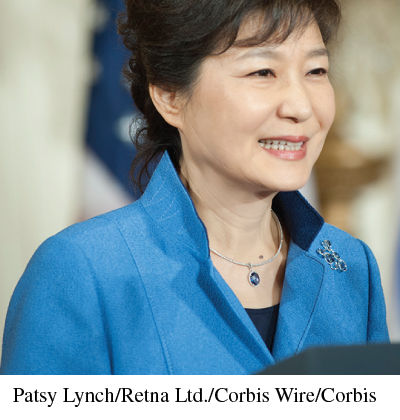Introduction to Chapter 6
84
Instructor's Notes
To download handouts of the Learning by Doing activities and checklists that appear in this unit, and to access lecture slides, teaching tips, and Instructor’s Manual materials, go to the “Instructor Resources” folder at the end of this unit.
6
Interviewing a Subject

Patsy Lynch/Retna Ltd./Corbis Wire/Corbis;
|

Christian Charisius/Corbis Wire/Corbis;
|

David Paul Morris/Bloomberg via Getty Images.
|

Chris Ratcliffe/Bloomberg via Getty Images;
|
Responding to an Image
Suppose that you had an opportunity to interview one of the people shown here. Park Geun-hye (top left) is president of South Korea and the first woman to hold that position. George R. R. Martin (top right) is the author of the Game of Thrones series of books, the basis of the television series of the same name. Sheryl Sandberg (bottom right) is the CEO of Facebook. Entrepreneur Elon Musk (bottom left), founder and CEO of Space Exploration Technologies Corporation, also founded Tesla Motors, which builds electric cars. What questions would you most like to ask the interviewee? Based on the person’s public image and personality as revealed in these photos, what kind of response would you expect to receive? How do you think the photographer has tried to suggest something about the person?
85
Don’t know what to write about? Go talk with someone. Meet for half an hour with an anthropology professor, and you probably will have plenty of material for a paper. Just as likely, you can get a paper’s worth of information from a ten-minute exchange with a mechanic who relines brakes. Both the mechanic and the professor are experts. But even people who aren’t usually considered experts may provide you with material.
You can direct a conversation by asking questions to elicit what you want to find out. You do so in an interview—a conversation with a purpose—usually to help you understand the other person or to find out what that person knows. You may use what you learn to profile the individual interviewed. However, interviews also provide expert information about a topic, intriguing firsthand accounts of an event or an era, or research samples of selected or representative people.
Why Interviewing a Subject Matters
In a College Course
For your American Studies course, you gather firsthand knowledge about a moment in history by interviewing a veteran, a civil rights activist, a disaster survivor, or a person who experienced a local event.
You interview a person who mentors students or sponsors internships to gain career advice (perhaps from an early childhood educator, a public safety officer, a health care provider, an artist, or a catering manager).
In the Workplace
You interview an “informed source” for a news site, a benefits specialist for a profile in your company newsletter, or your customers or clients for feedback on company products and services.
In Your Community
You contact experts to learn about composting food waste through the new city program or about installing a ramp to make your home accessible for your child who uses a wheelchair.
 Whom would you like to interview as an intriguing personality? Whom would you like to interview for answers or advice about some of your questions? In what situations might you conduct interviews in the future?
Whom would you like to interview as an intriguing personality? Whom would you like to interview for answers or advice about some of your questions? In what situations might you conduct interviews in the future?